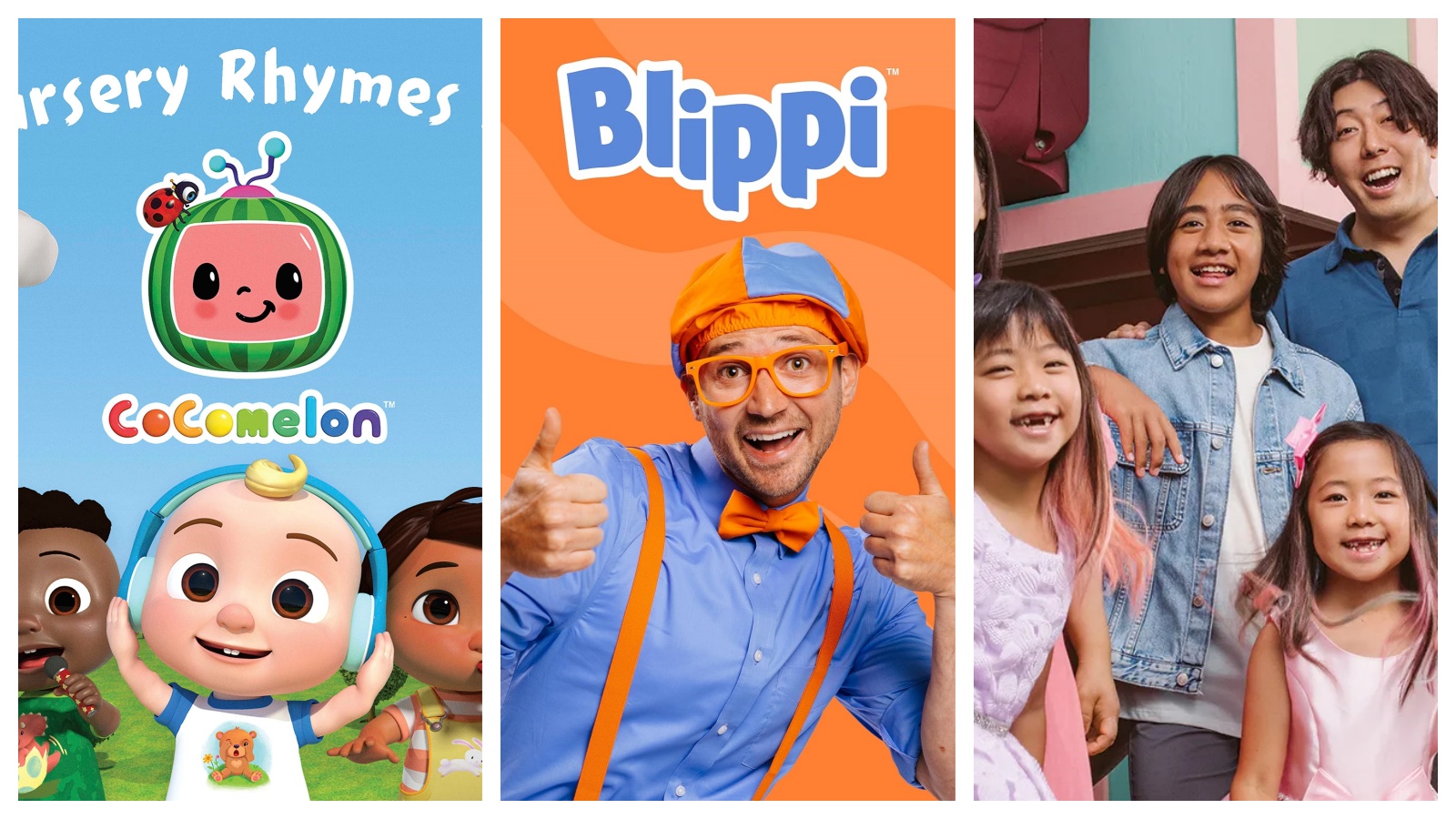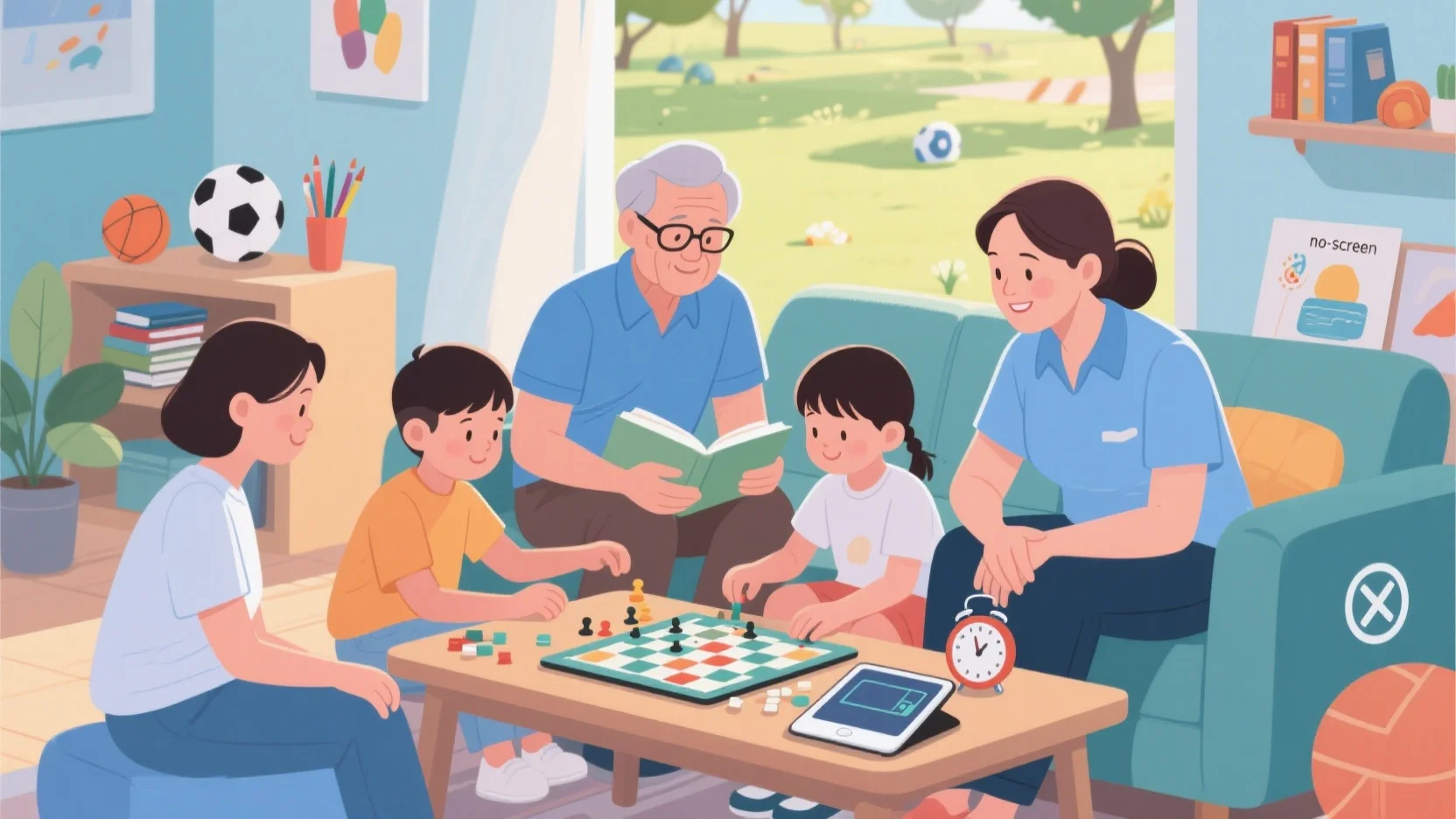Toddlers’ brains are still developing, and certain TV shows—even popular ones—can be too fast, loud, or chaotic, leading to overstimulation, tantrums, or trouble winding down. Here’s a breakdown of which shows may be too intense for little ones and calmer alternatives to consider.
🚨 Most Overstimulating Toddler Shows (And Why)
1. Cocomelon
Why?
- Extremely fast scene cuts (every 2-3 seconds)
- Loud, repetitive songs
- Bright, flashing colors
- Highly addictive pacing (designed to keep kids glued)
🔹 Parent reports: Many say their toddlers get hyper, have meltdowns after watching, or beg for more screen time.
2. Blippi
Why?
- Very high-energy host (yelling, exaggerated movements)
- Rapid camera zooms and cuts
- Overly bright, primary-colored visuals
- Lacks natural pauses or quiet moments
🔹 Parent reports: Some kids mimic Blippi’s loud behavior or struggle to calm down after watching.
3. Ryan’s World / Ryan’s Mystery Playdate
Why?
- Fast-paced, chaotic editing
- Loud sound effects and yelling
- Commercialized content (constant toy promotions)
- Overstimulating transitions
🔹 Parent reports: Some notice increased demanding behavior (wanting toys seen on the show).
4. PJ Masks / Superhero Shows
Why?
- Intense action scenes (fighting, chasing, rescues)
- Bright neon colors and flashing lights
- Fast dialogue and quick scene changes
🔹 Parent reports: Some toddlers act out superhero battles aggressively or get too hyper.
5. SpongeBob SquarePants
Why?
- Extremely fast pacing (even adults find it chaotic!)
- Loud, exaggerated voices
- Surreal, frenetic humor (confusing for toddlers)
🔹 Expert opinion: The American Academy of Pediatrics (AAP) recommends avoiding SpongeBob for kids under 6 due to its overstimulating nature.
6. Bubble Guppies
Why?
- Constant singing and dancing
- Rapid scene transitions
- Busy underwater visuals
🔹 Parent reports: Some kids love the music but struggle to focus afterward.
7. Peppa Pig
Why?
- Fast background movements (cars, jumping in mud)
- Occasional loud arguments (Peppa’s tantrums)
- British pacing (some toddlers find it hard to follow)
🔹 Note: While less intense than Cocomelon, some sensitive kids still find it too stimulating.
**✅ Signs Your Toddler Is Overstimulated by TV**
If your child shows these behaviors during or after screen time, the show might be too intense:
- Hyperactivity or restlessness
- Tantrums when the show ends
- Trouble transitioning to quiet activities
- Mimicking loud/aggressive behavior
- Difficulty falling asleep
🎧 Calmer, Low-Stimulation Alternatives
If your toddler gets overstimulated easily, try these gentler, slower-paced shows:
1. Daniel Tiger’s Neighborhood
✅ Why?
- Soft, slow pacing
- Teaches emotional regulation
- Gentle songs and life lessons
2. Bluey
✅ Why?
- Relaxed storytelling
- Focuses on family and imaginative play
- No loud noises or flashing lights
3. Puffin Rock
✅ Why?
- Beautiful, soothing animation
- Nature sounds and calm narration
- No sudden movements or loud noises
4. Sarah & Duck
✅ Why?
- Quirky but slow-paced
- Minimal dialogue, gentle humor
- Great for sensitive kids
5. Tumble Leaf (Amazon Prime)
✅ Why?
- Stop-motion animation (calmer visuals)
- Encourages curiosity and exploration
- No fast cuts or loud sounds
📊 Quick Comparison: Overstimulating vs. Calm Shows
| Overstimulating Shows | Why? | Calmer Alternatives |
|---|---|---|
| Cocomelon | Fast cuts, loud music | Daniel Tiger |
| Blippi | Yelling, rapid zooms | Bluey |
| Ryan’s World | Chaotic, commercialized | Puffin Rock |
| PJ Masks | Action-packed, neon colors | Sarah & Duck |
| SpongeBob | Hyper, surreal humor | Tumble Leaf |
🎯 Final Tips for Managing Screen Time
- Limit fast-paced shows (save them for short, occasional viewing).
- Choose slow, educational shows for daily screen time.
- Watch together and discuss what’s happening (helps with comprehension).
- Avoid TV before bedtime (overstimulation can disrupt sleep).
- Notice your child’s reactions—if they get hyper or cranky, switch to calmer content.
Bottom Line:
Not all kids react the same way—some handle fast shows fine, while others get overwhelmed. If your toddler seems agitated or hyper after TV, try switching to gentler alternatives and see if it helps!








